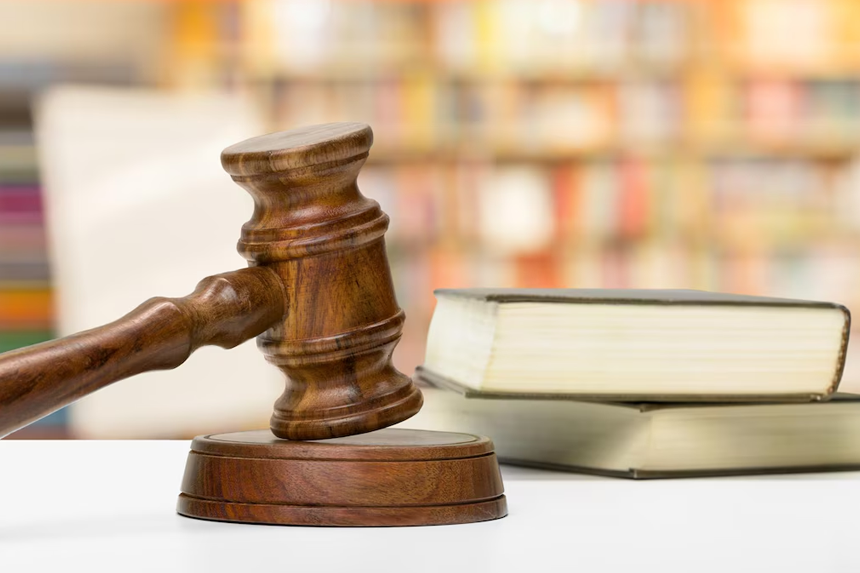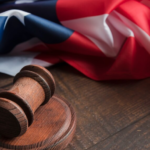President-elect Donald Trump’s last bid to delay his punishment in the criminal hush-money case was denied by the US Supreme Court. In a 5-4 ruling, the judges rejected Trump’s request to halt the January 10 hearings. The court determined that Trump’s objections could be addressed in subsequent appeals, notwithstanding his claim that he was entitled to an automatic stay.
Trump was found guilty in May 2024 of fabricating documents to hide payments for the $130,000 hush money he sent to adult film star Stormy Daniels in 2016. Under the pretense of legal fees, this payment was made. The case’s judge, Juan Merchan, has stated that he will not consider imprisoning Trump.
What Was Trump's Reaction to the Court’s Decision?
Trump responded to the Supreme Court’s ruling on Thursday evening, calling the case a “disgrace.” However, he acknowledged the decision was “fair” in his view. “It’s a judge that shouldn’t have been on the case,” Trump said, apparently referring to Justice Merchan. “They can have fun with their political opponent.”
Later, on his Truth Social platform, Trump added: “The pathetic, dying remnants of the Witch Hunts against me will not distract us.” This reflects his ongoing defiance against legal challenges.
How Did the Supreme Court Justices Vote?
In a divided ruling, two conservative justices, John Roberts and Amy Coney Barrett, joined the three liberal justices in denying Trump’s request for a delay. The other four conservative justices — Clarence Thomas, Samuel Alito, Neil Gorsuch, and Brett Kavanaugh — supported Trump’s bid to postpone the sentencing.
Justice Alito, in particular, faced criticism after it was revealed he had a phone conversation with Trump just a day before the decision. During this call, Alito recommended one of his former law clerks for a job in the incoming president’s administration. Critics have raised concerns about the propriety of this interaction.
Why Did the Court Deny Trump’s Request?
The Supreme Court justices stated that Trump’s concerns could be addressed during an appeal and ruled that attending the sentencing would not be an undue burden on the former president. Trump’s legal team also sought to argue that presidents-elect are immune from criminal prosecution. However, the justices rejected this claim, as it lacked support from any prior court decisions.
How Did Manhattan Prosecutors React to Trump's Bid?
Manhattan prosecutors strongly opposed Trump’s request, emphasizing that there was a “compelling public interest” in moving forward with the sentencing and that there was “no basis” for such a delay. They contended that an immediate resolution was necessary to maintain the integrity of the justice system.
What Was Trump’s Legal Strategy Moving Forward?
Following Trump’s conviction in May 2024, he had been set to face sentencing in July. However, his legal team successfully persuaded Justice Merchan to delay the proceedings on three separate occasions. Just last week, Merchan confirmed that the sentencing would move forward on January 10, just days before Trump is to be sworn in again as president.
Trump’s legal team has continued to file appeals, attempting to prevent the sentencing. Despite their efforts, New York courts rejected each request, and the Supreme Court ultimately denied intervention.
What About Trump's Presidential Immunity Claim?
Trump’s lawyers have continued to argue that as a president-elect, Trump should be afforded the same immunity protections as a sitting president, which would shield him from prosecution. This argument hinges on the idea that he should not be held accountable for actions that occurred before taking office.
In a ruling last year, the Supreme Court’s conservative majority ruled that US presidents enjoy immunity for “official acts” undertaken in office. This decision significantly weakened a federal prosecution against Trump regarding his alleged interference in the 2020 election. However, Manhattan prosecutors have argued that Trump’s claim for immunity in this case is without merit.
“It is axiomatic that there is only one President at a time,” they wrote in their brief to the Supreme Court.
How Are Legal Scholars and Public Officials Responding?
A group of former public officials and legal scholars filed an amicus brief, urging the Supreme Court to reject Trump’s attempt to avoid accountability. They argued that allowing Trump to bypass sentencing would undermine the rule of law.
Was There Another Setback for Trump on Thursday?
In another legal blow, a federal appeals court in Georgia rejected Trump’s bid to block the release of part of special counsel Jack Smith’s report. The report details Trump’s alleged plot to prevent the transfer of power to Joe Biden after the 2020 election. Attorneys for two of Trump’s associates — Walt Nauta and Carlos de Oliveira — argued that releasing the report would unfairly prejudice future criminal cases against them.




